The Torah establishes no explicit association between Rosh Hashanah and Yom Kippur. The former is briefly described as “a day of blowing the horn” (Num. 29:1), while Yom Kippur is more elaborately defined as “a day of atonement, to make atonement for you before the Lord…and ye shall afflict your souls” (Lev. 23:28; 32).
-Max Arzt
“The Fundamental Concepts in the Yom Kippur Liturgy: An Introduction,” p.191
Justice and Mercy: Commentary on the Liturgy of the New Year and the Day of Atonement
Note: I wrote this blog post a number of days before listening to and reviewing yesterday’s Holy Epistle to the Hebrews sermon by D. Thomas Lancaster, which also addresses issues related to Yom Kippur and atonement.
I know I’ve asked a strange question in the title of this blog post from a Christian’s point of view. The Church teaches that sins are not forgiven unless we confess Jesus Christ as Lord and Savior over our lives and convert to Christianity. It doesn’t matter if you’re Jewish or any other sort of person. There is one standard of righteousness and one path to salvation, and that is through Jesus.
Jesus said to him, “I am the way, and the truth, and the life; no one comes to the Father but through Me.”
-John 14:6 (NASB)
Of course the Master also taught:
“No one can come to Me unless the Father who sent Me draws him; and I will raise him up on the last day.”
–John 6:44
Effectively, this is saying that to come to faith in Messiah is impossible unless God draws that person to such faith, so the ultimate onus is upon God for our salvation, or so it would seem. I think a Calvinist would see it that way, interpreting the verse further to mean that God only draws certain people to Jesus and not others. However, it could also mean that God extends a universal invitation to such faith but that invitation does not automatically override human free will, thus some accept while others reject.
But that doesn’t answer the question I asked in the title of this blog post.
Who, O God, is like You. Who pardons iniquity and overlooks transgression for the remnant of His heritage? Who has not retained His wrath eternally, for He desires kindness! He will again be merciful to us; He will suppress our iniquities. And cast into the depths of the sea all their sins. Grant truth to Jacob, kindness to Abraham, as You swore to our forefathers from ancient times.
–Micah 7:18-20 (Stone Edition Chumash)
from the Haftarah Portion of Torah Reading Haazinu
when Haazinu falls between Rosh Hashanah and Yom Kippur
This week’s Shabbat, coming as it does between Rosh Hashanah and Yom Kippur, bears the name Shabbat Shuvah, “the Sabbath of Returning.” The name derives from the opening words of the haftarah, “Return, O Israel, to the Lord your God…Say unto Him: give all guilt and accept what is good…Never again will we call our handiwork our god.” (Hosea 14:3-4) The passages from the prophets Hosea, Joel, and Micah, which are joined to make up our haftarah, breathe a worldview far less deterministic than the one that animates Ha’azinu. Without the possibility of righting our wrongs, who needs prophets? Their very mission is predicated on the promise of a second chance, if merited…
…By rejecting fatalism of any sort, Judaism gives us a measure of control over our lives. As we reach for self-improvement and not perfection during the High Holy Days, we find ourselves buoyed both by the prayers that envelop us and by the community that surrounds us. Our struggle ended, we leave the synagogue at peace, cleansed and transformed to start living afresh.
-Ismar Schorsch
“Teshuvah Makes Life Bearable,” pp.632-3
Commentary on Torah Portion Haazinu
Canon Without Closure: Torah Commentaries
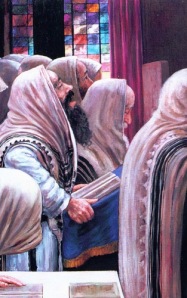 Far from what most Christians think about Yom Kippur, it is not a time of great tragedy among Jewish synagogues world-wide, but rather, a time of hope, when people can take hold of their responsibility to repent in the presence of God, and feel assured that they don’t have to be perfect in order for their sins to be atoned for, but rather dedicated to increased spiritual development, to owning up to their commitment to be better in the future than they have been in the past.
Far from what most Christians think about Yom Kippur, it is not a time of great tragedy among Jewish synagogues world-wide, but rather, a time of hope, when people can take hold of their responsibility to repent in the presence of God, and feel assured that they don’t have to be perfect in order for their sins to be atoned for, but rather dedicated to increased spiritual development, to owning up to their commitment to be better in the future than they have been in the past.
But does God honor that commitment year by year on Yom Kippur? Even if we believe that ultimate atonement and redemption is an effect of the New Covenant, since my understanding of the Sinai Covenant is that it was not designed to permanently redeem from sin, by faith in the accomplished work of the New Covenant mediator, Messiah, what about in the meantime? I firmly believe we continue to live in Old (Sinai) Covenant times, since the New Covenant only enters our world in full upon Messiah’s return and at the resurrection. Thus even though we are taught we must behave as if the New Covenant is completely present, even though it isn’t, then the Old Covenant for the Jewish people, even as many of us long for the New Covenant to be completed, remains fully applicable upon them, for if the New Covenant is not yet totally present, then the Old Covenant, by definition, must remain.
All that being true, and I believe it is, then it is not a vain thing for Jews, Messianic and otherwise, all over the world, to continue to uphold their covenant responsibilities to God under the Sinai Covenant.
For if it [the Torah] is not an empty thing. And if it is, the emptiness lies in you, because you have simply not exerted yourselves in the study of Torah.
-Yerushalmi Peah 1:1
To be counted as a Jew, one ought to have a link of some sort with the canon on which our covenant with God rests. it is a relationship, a measure of engagement that expresses membership. As long as the Torah draws us to explore its sacred contents, the possibility of God entering our lives still exists. A closed book signals the end of the relationship. That is why the Torah is chanted publicly in the synagogue each week, and when at Simhat Torah we have finished the final parasha, we hurry right back to the beginning without a break.
-Ismar Schorsch
“Survival Through Study,” p.635
Commentary on Torah Portion Haazinu
Canon Without Closure: Torah Commentaries
You might say to yourself that without the Temple, the Priesthood, the Sanhedrin, and the other institutions that makes Torah observance possible, including the commandments surrounding Rosh Hashanah and Yom Kippur, that there can be no atonement of sins for anyone, including the Jewish people, without faith in Christ. That would mean, for the past two-thousand years, all Jews who have not set aside their Jewish heritage and the Sinai Covenant along with it, and converted to Christianity (either voluntarily or by force), have died in their sins and are destined to burn for all eternity in Hell, regardless of their utter devotion to the God of their Fathers and their faithful attendance to the mitzvot as commanded by the Torah of Moses.
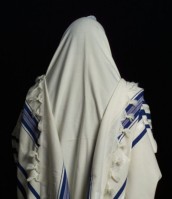 You see, from the point of view of these Jews, they don’t believe that God abrogated the promises of the past as found in the Torah and the Prophets, and replaced them with a Goyishe King who is to be worshiped and which for all the world feels like pagan idolatry and quite possibly polytheism.
You see, from the point of view of these Jews, they don’t believe that God abrogated the promises of the past as found in the Torah and the Prophets, and replaced them with a Goyishe King who is to be worshiped and which for all the world feels like pagan idolatry and quite possibly polytheism.
Not that we Christians see it that way, but for the vast, vast majority of Church history, that’s exactly how we’ve been “selling” Christianity to the world, including and especially the Jewish world.
But without the Temple, how can Jews atone for sin? We forget that this isn’t the first time in Jewish history that there has been no Temple. Did God forsake the Jewish people and not forgive sin when they entered the Babylonian exile? Did the Prophets and the righteous among their generations, remain in their sins and die in iniquity? What of Daniel, Ezra, Nehemiah, and the others among the righteous of Israel? Did the lack of a Temple and the absence of a Messiah result in their damnation?
If not, then why do we automatically throw all of the Jewish people who have lived and died as faithful to Hashem, the God of their Fathers, under the proverbial bus now?
Oh, because in the meantime, Jesus was born, lived, died, was resurrected, and ascended. Something new indeed has been added. But maybe not to the result you’ve been taught to believe.
With the destruction of the Second Temple, its awesome Yom Kippur ritual became a liturgical memory preserved by the synagogue. The theme of owning up to our misdeeds remained central to the tenor of the day as shaped by the synagogue, but it now fell upon Jews to confess their sins themselves. The synagogue eliminated the priestly intermediary.
-Ismar Schorsch
“Assuming Responsibility for Our Actions,” p.670
Commentary on Yom Kippur
Canon Without Closure: Torah Commentaries
How heartbroken God must be when He encounters this realization among His people Israel, and that, for a time, the majority of the Jewish people will miss the message provided by the writer of the Holy Epistle to the Hebrews that even if they are (temporarily) without a Temple in Jerusalem and thus without an Aaronic priesthood, they still have access to the Heavenly Temple and a higher intermediary in Moshiach. But the day will come indeed when God will fulfill His promises and all Israel will be saved (Jeremiah 31:34; Romans 11:26-27).
What is striking about the confessions of Yom Kippur is that they are all formulated in the plural. By reciting them in unison as a faith community, we are spared individual humiliation. Yet for each of us, the words are highly personalized. In our private space, we confess to God alone. And what of the sins we did not commit? We assume a share of guilt, “for all Jews are responsible for each other.”
-Ismar Schorsch
“Assuming Responsibility for Our Actions,” p.671
Commentary on Yom Kippur
Canon Without Closure: Torah Commentaries
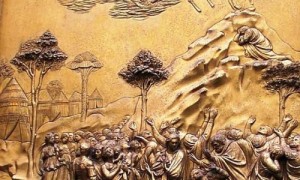 At Sinai, all of Israel answered God as one man (Exodus 19:8) that they would do everything God commanded in His Torah as their responsibility for upholding their covenant relationship with God. God (or Moses) didn’t approach each individual present at the foot of the mountain and ask for their personal acceptance or rejection of the covenant. God has always treated Israel as one, both in the blessings and the curses, regardless of the relative merits of each individual.
At Sinai, all of Israel answered God as one man (Exodus 19:8) that they would do everything God commanded in His Torah as their responsibility for upholding their covenant relationship with God. God (or Moses) didn’t approach each individual present at the foot of the mountain and ask for their personal acceptance or rejection of the covenant. God has always treated Israel as one, both in the blessings and the curses, regardless of the relative merits of each individual.
Thus if Israel, as a whole, the good and the bad among them, were all exiled, so will they all be redeemed, restored, and gathered back to their Land and their relationship to the Almighty.
How this will happen, I don’t know. I only know that if God doesn’t do it, then He violates His New Covenant promises to Israel that all of their sins will be forgiven.
But then there’s this:
Here, the efficacy of Yom Kippur is limited. Without seeking forgiveness from those we have hurt and without public confession, Yom Kippur offers us little relief or comfort. The ritual of fasting and praying on its own is not sufficient to remove the stain.
-Ismar Schorsch
“Assuming Responsibility for Our Actions,” p.672
Commentary on Yom Kippur
Canon Without Closure: Torah Commentaries
Here we see there are individual variables involved, and that man’s free will does play a part in God’s redemption of Israel. Specific Jewish people are indeed responsible. In this rendition, they are responsible to appeal both to God and to their fellow human beings who they have injured, perhaps, at least from my point of view, in response to the Master’s understanding of the essential essence of Torah:
“Teacher, which is the great commandment in the Law?” And He said to him, “‘You shall love the Lord your God with all your heart, and with all your soul, and with all your mind.’ This is the great and foremost commandment. The second is like it, ‘You shall love your neighbor as yourself.’ On these two commandments depend the whole Law and the Prophets.”
–Matthew 22:36-40 (NASB)
And keeping the individual Jew among all Israel in mind:
Who, O God, is like You. Who pardons iniquity and overlooks transgression for the remnant of His heritage?
–Micah 7:18 (Stone Edition Chumash)
How are we to resolve the apparent conflict between the language of Jeremiah 31:34 and Romans 11:26-27 which promises salvation for corporate Israel and the “remnant” spoken of in Micah 7:18?
I don’t know. One theory is that after the great wars, all of the unbelieving Jews will be killed and all of the Jewish survivors will be believers. That doesn’t sound quite right to me although I guess it fits the criteria. Another theory is that upon Messiah’s return, all of Israel living at that time will see him and acknowledge him and in that confession, will be saved. But that doesn’t address all of the Jewish souls who lived and died before the advent of Messiah, nor the Jews who have not accepted the revelation of his identity from that advent until now.
But I’m just guessing, of course. All I know for sure is that based on the aforementioned scriptures, God promised that Israel will be saved in the last days so I know He will do it, even if I don’t know how.
But what about the annual event of Yom Kippur? Are Jewish sins of the past year atoned for on that date without faith in Messiah? Isn’t faith in God (the Father) enough?
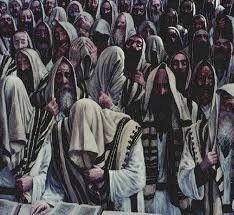
I can’t see from God’s point of view and the Bible doesn’t specifically address this circumstance, but not being God, I’m willing to be compassionate with merely a human heart and believe that yes, God hears the prayers of the Jewish people, all Jewish people when they pray, when they repent, when they seek the forgiveness of those they have wronged in sincerity, even if some of what they may believe isn’t correct, even if they have not yet come to the realization of the revelation of the identity of Messiah, that God does not callously discard their prayers of repentance and that He does forgive provisionally and annually in the spirit of His future ultimate and eternal forgiveness under the New Covenant promises.
No, I can’t prove that, I can only believe by faith that God will and has continued to keep His promises that He has made in the Bible, that Israel will always be a nation, His nation, and will always be before Him as His special and beloved people.
Thus says the Lord,
“If the heavens above can be measured
And the foundations of the earth searched out below,
Then I will also cast off all the offspring of Israel
For all that they have done,” declares the Lord.–Jeremiah 31:37 (NASB)
Behold, I will gather them out of all the lands to which I have driven them in My anger, in My wrath and in great indignation; and I will bring them back to this place and make them dwell in safety. They shall be My people, and I will be their God; and I will give them one heart and one way, that they may fear Me always, for their own good and for the good of their children after them. I will make an everlasting covenant with them that I will not turn away from them, to do them good; and I will put the fear of Me in their hearts so that they will not turn away from Me. I will rejoice over them to do them good and will faithfully plant them in this land with all My heart and with all My soul.
–Jeremiah 32:37-41 (NASB)
The word of the Lord came to Jeremiah, saying, “Thus says the Lord, ‘If you can break My covenant for the day and My covenant for the night, so that day and night will not be at their appointed time, then My covenant may also be broken with David My servant so that he will not have a son to reign on his throne, and with the Levitical priests, My ministers. As the host of heaven cannot be counted and the sand of the sea cannot be measured, so I will multiply the descendants of David My servant and the Levites who minister to Me.’”
–Jeremiah 33:19-22 (NASB)
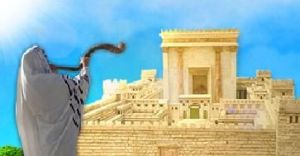 Thus, on the basis of these “better promises,” I choose to believe that God still hears the voices of all of the Jewish people everywhere, as they pray, as they make teshuvah, as they call upon the Name of the Lord their God who made those promises. I choose to believe that their sins are forgiven for another year with the realization that a final judgment is yet to come. But even in that final judgment, God will still keep His Word that He gave in the Torah and the Prophets, and save Israel from her sins through the New Covenant He will make with them through its mediator Messiah, may he come soon and in our day.
Thus, on the basis of these “better promises,” I choose to believe that God still hears the voices of all of the Jewish people everywhere, as they pray, as they make teshuvah, as they call upon the Name of the Lord their God who made those promises. I choose to believe that their sins are forgiven for another year with the realization that a final judgment is yet to come. But even in that final judgment, God will still keep His Word that He gave in the Torah and the Prophets, and save Israel from her sins through the New Covenant He will make with them through its mediator Messiah, may he come soon and in our day.
If you want to believe I’m wrong, I understand. All I can do now is proceed with hope, for if God breaks His Word and His Covenants with Israel, then the rest of us are also utterly forsaken, and all humankind will perish forever.
One last question. If it is true that God forgives observant Jews of their sins on Yom Kippur based on the promises of the Sinai Covenant as the currently existing agreement between the Jewish people and God, will God forgive those Jews who we call “Hebrew Christians” who are in our churches and who have been taught to forsake the Sinai Covenant and set aside the Torah of Moses?
For another take on Yom Kippur, read the brief article Judgement Day presented by First Fruits of Zion.

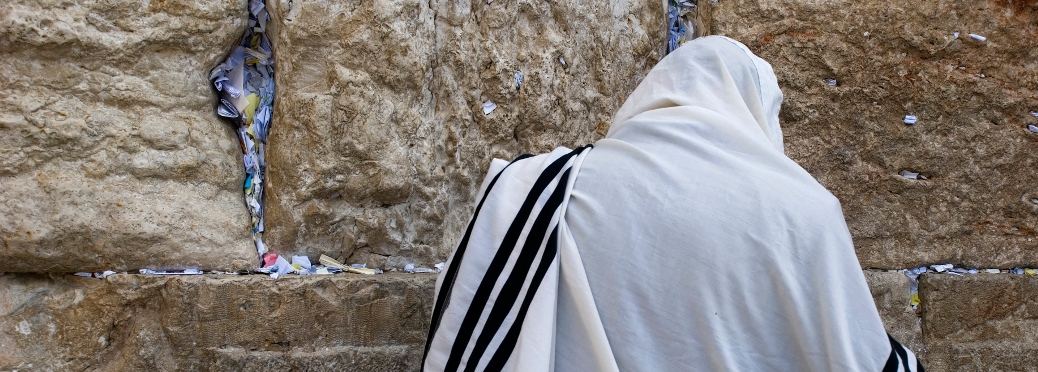
Peace to all,
Very important, i want to note, there is no forgiveness of sins without ‘teshuvah’. Whether one believes in Yeshua as Messiah or not. Repentance is “key”. The Jewish people are under “Covenant” with G-d and so now that there is no Temple forgiveness of sins against G-d alone is simply obtained through repentance and confession of one’s sins in words, and amending one’s future conduct according to halakhah; when one sins against a person (as by theft or injury), he must also do his best to make restitution to the person injured and gain his forgiveness, as well as repenting, confessing, and making amends in future conduct before G-d.
“May you finish with a a good inscription!”
According to Lancaster, the Temple rituals were never designed to actually forgive sin, particularly intensional sin, and it was always sincere confession and repentance that was the key to atonement. The Yom Kippur sacrifices were to purify the Kohen Gadol and the entire nation of Israel so they could draw near to the Divine Presence, particularly since the Gadol was in the Holy of Holies, in the midst of the Divine Presence. Since there is no Temple, there is no specific location where the unique Divine Presence of God exists in our world, not that God, as Spirit, is not everywhere, thus there is no requirement for the sacrifices for it is impossible for anyone to physically draw near to the Divine Presence of the Holy One. Whether the Temple exists or does not exists, confession and repentance have always been the “currency” by which man received atonement for sins from God. It was true of the Israelites during the Babylonian exile when there was no Temple, and it is true today.
When the people heard this, they were cut to the heart and said to Peter and the other apostles, ‘Brothers, what shall we do?’
Peter replied, ‘Repent and be baptised, every one of you, in the name of Jesus Christ for the forgiveness of your sins. And you will receive the gift of the Holy Spirit. The promise is for you and your children and for all who are far off – for all whom the Lord our God will call.’ (Acts 2)
The God of our ancestors raised Jesus from the dead – whom you killed by hanging him on a cross. God exalted him to his own right hand as Prince and Saviour that he might bring Israel to repentance and forgive their sins. We are witnesses of these things, and so is the Holy Spirit, whom God has given to those who obey him.’ (Acts 5)
All the prophets testify about him that everyone who believes in him receives forgiveness of sins through his name.’ (Acts 10)
Therefore, my friends, I want you to know that through Jesus the forgiveness of sins is proclaimed to you. Through him everyone who believes is set free from every sin, a justification you were not able to obtain under the law of Moses. (Acts 13)
There’s a difference between how Yom Kippur works (in my opinion) and how ultimate redemption works. They really can’t be compared to one another, since the Temple’s sacrificial system was never designed to permanently take away sin and give the promise of the resurrection and life in the world to come (although I don’t doubt that more than a few Jewish people in the days of the Apostles may have believed otherwise). The Old (Sinai) covenant had and still has many advantages:
Through sincerely prayer and repentance, the Yom Kippur service could provide atonement on a year-by-year basis and even David, after his sin with Bathsheva, prayed (and I believe received) atonement for his sins in by his repentance (see Psalm 51).
However, it is under the New Covenant (see Jeremiah 31 and subsequent chapters as well as Ezekiel 36) of which Messiah is the mediator (Hebrews 9) that being “saved” permanently and forever, is granted. Being “saved” isn’t just a matter of personal, individual salvation. Christians think as individuals but Jews think like a community in a Biblical sense. How will we be saved, is how will Israel be saved and redeemed by God so that all the exiles will be returned, Israel will be granted self-rule under King Messiah, Israel will live at peace with all of her enemies destroyed, and Israel will be the head of all the nations while the rest of the nations of the world will be the “tail”. Yes, the resurrection of the dead comes into play, since Jesus is the forerunner, the first fruits of the dead, and the promise of an eternal, immortal life comes with that, but in Judaism, that part isn’t the primary focus.
It’s the New Covenant that addresses all that. The Sinai Covenant doesn’t. However, the New Covenant, rather than being a total departure from all of the prior promises and covenants God made with Israel, is a continuation and extension so that it builds on all of the covenants that came before, which have always been focused on the well-being of Israel and her good. The Jewish people don’t have to dump everything they had before, convert to Christianity, and become assimilated into “the Church.” They do have to ultimately come to faith in the accomplished work of Messiah, which was as the herald and living evidence that the New Covenant promises are true and are going to come true (the giving of the Holy Spirit in absolute abundance so that everyone will “know God” with the totality of the greatest of the Prophets, resurrection of the people of Israel – and anyone else who cleaves to God through faith in Messiah’s works – from the dead, the final, complete, and permanent atonement for sins (Jeremiah 31:34; Romans 11:26-27) resulting in all of Israel being saved in the manner I described above.
Most Christians don’t get this and so misunderstand the meaning of Yom Kippur, the sacrificial system in general, and the role and function of Jesus as the High Priest (but only) in the Heavenly Temple.
Hi! I’m not familiar with how blogs typically work, and not sure if I’m supposed to give my opinion, critique, or what. Being a straight shooter, I’ll just say it as it comes to me and you can let me know in PM or public if I’m breaking some unwritten social media taboos. Please do.
I’m suspecting Ismar Schorsch is a practicing Christian. He says: “but it now fell upon Jews to confess their sins themselves. The synagogue eliminated the priestly intermediary.”
My thoughts: What was the priest- it was a picture maybe, like the sacrifices? Or maybe a compromise, because other nations around did this & we Jews were too “baby”?
Forgiveness was ALWAYS based off of repentance & personal relationship. This HAS to be our frame. Look at King David. He didn’t go to the Temple, he repented directly to HaShem.
If Torah is our framework, can we assume it “fell on” Jews to confess themselves, and that the priest was a needed intermediary? Too many scriptures say otherwise. It’s got to be simple, no trying to force the peg of Christian doctrine into Torah.
On the last question. It is currently written:
One last question. If it is true that God forgives observant Jews of their sins on Yom Kippur…
I don’t think it’s an “If/then”. I would re-word it: While we are sitting here trying to figure out if “they” will be “saved” I ask this question: Will Gd forgive the “Hebrew Christians” who are in our churches who have been taught to forsake the Sinai Covenant and set aside the Torah of Moses and the “regular Christians” who have been taught that the Church replaced Israel, and that the Torah is abrogated?
I think it’s more striking that way, and they are two independent thoughts.
🙂
צוֹם קַל
Hi Tikvah. I guess you can comment here the way you would on Facebook. Otherwise, just talk to me and it’ll be fine.
Actually Ismar Schorsch is a Conservative Jew and the son of a Rabbi. He served as Chancellor of the Jewish Theological Seminary until his retirement in 2006. I find his Torah commentaries enlightening and they’ve become a staple of my Torah studies each Shabbat.
I agree that confession and sincere repentance were always the means by which the Jewish people gained atonement for sin. The sacrificial system enabled the Jewish people to physically draw near the Divine Presence of the Almighty in the Temple, but when the Temple doesn’t exist, the Divine Presence is not near so the korban isn’t required. Repentance is always required.
As far as what being “saved” means, my response to Onesimus in an earlier comment on this blog post describes my belief about how that works:
May you have an easy fast.
I was reading Rabbi Abraham Twerski’s commentary for Yom Kippur and thought it was a very good way to further explain what I’ve been trying to say in my blog post:
No one can sufficiently repent of their sins, as is regretting them, or in asking for forgiveness for them, from those we have hurt, or from G-d.
Yom Kippur may be termed the Day of Atonement, but it is as much a thing thing for individuals, as for the Nation. It is a day of Teshuvah, of turning back to the ways of G-d, of resolve to be more righteous in one’s deeds. Yes, one should certainly be pained by what wrong one has done, and regret it sufficiently to turn determinedly back to G-d, but despite the touching desire of Rabbi Twerski, it isn’t about feeling, but doing, and making a change in one’s life to prevent that fault from occurring again.
Rabbinical Jews born since the death of Yehoshua do not have the guarantee of the Redemption that Messianic Believers have, but they too are operating on the basis of faith in G-d, and in His mercy. Those Jews that have died outside of Yehoshua since He was executed still have a final Judgement to face, wherein their deeds and works (Mitzvoth) will be weighed in the balance, and their actions tested by fire.
Revelation 20:11-13 (KJV)
11 And I saw a great white throne, and him that sat on it, from whose face the earth and the heaven fled away; and there was found no place for them.
12 And I saw the dead, small and great, stand before God; and the books were opened: and another book was opened, which is the book of life: and the dead were judged out of those things which were written in the books, according to their works.
13 And the sea gave up the dead which were in it; and death and hell delivered up the dead which were in them: and they were judged every man according to their works.
One must recall that Abraham was accounted righteous for his faith, and faith is a deed and action that is also weighed in the balance.
Unfortunately, so too is the rejection of Yehoshua, but one must also remember that the Jews in part were kept from seeing Yehoshua as Mashiach so that the Gentiles could be brought to faith in Yehohsua, and G-d does not punish people for what He himself causes them to do.
Where the Jews of past, present and future are concerned, one must realize that Abba still holds them as the apple of His eye, and that if faith in YHVH is within a person, mercy also may be granted.
YHVH is, after all, a G-d of Grace as much as He is a G-d of Justice.
In his letter to the Romans, Paul says that most Jewish people, at least in his generation, have been “hardened” or “calloused” and prevented from perceiving the revelation of Yeshua (Jesus) as the true Messiah and what his accomplished works meant relative to the New Covenant. It’s the New Covenant which is the promise of the resurrection, final judgment, and eternal life for the faithful, as you present in your quote from Revelation. And yet, that covenant also promises that all of Israel will be saved. That’s the great distinction between final atonement and Yom Kippur. The High Holy Days are a dress rehearsal, so to speak. We must be prepared.